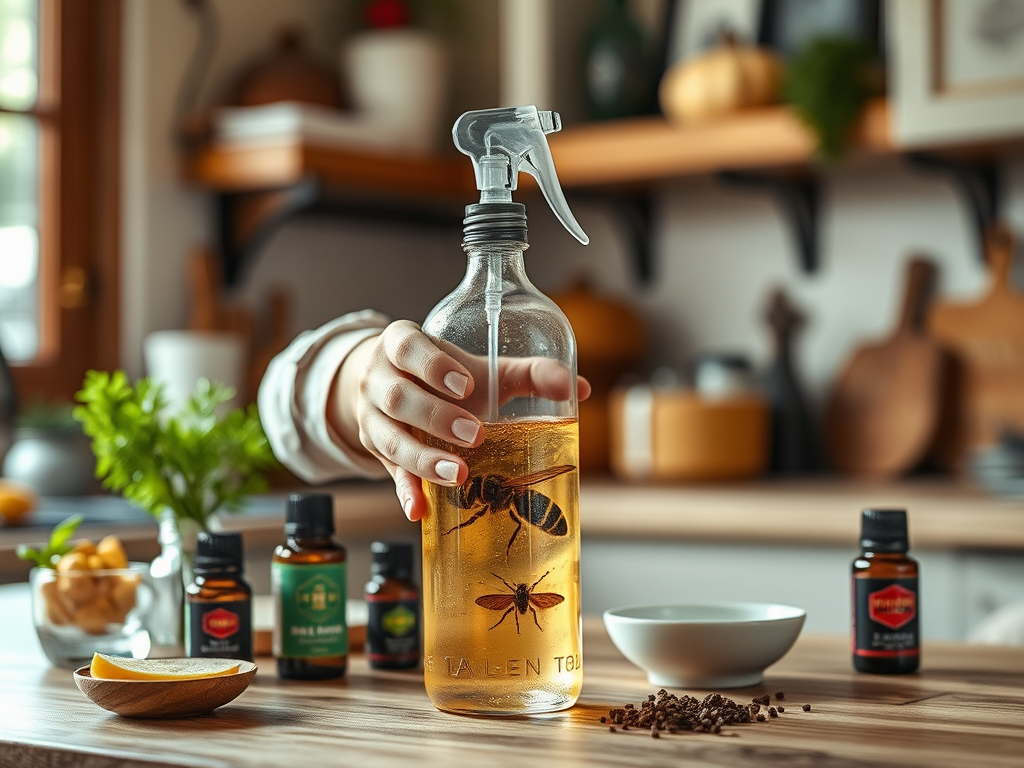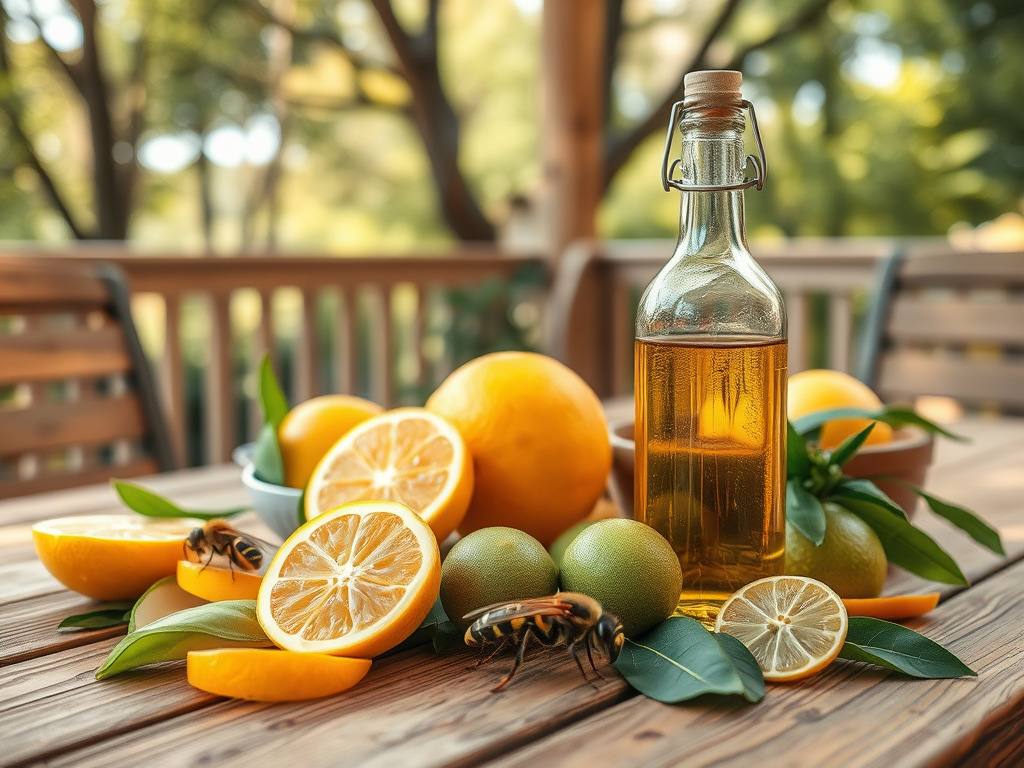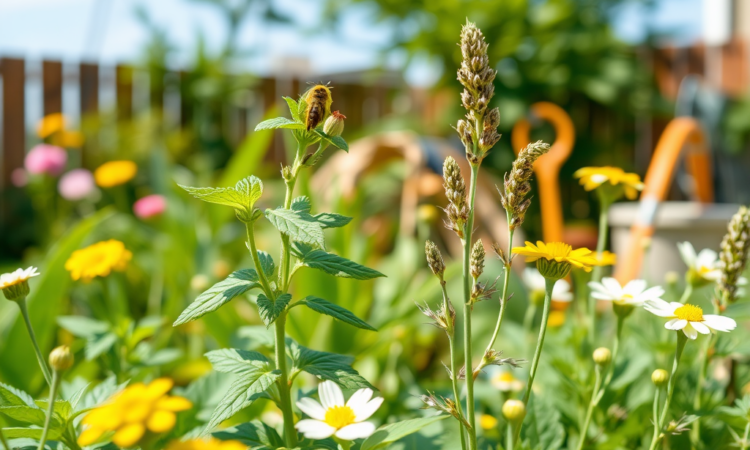Wasps can be a real nuisance, particularly during outdoor activities such as barbecues, picnics, and gardening. Their territorial nature and aggressive behavior, especially when they feel threatened, can turn a pleasant day into a stressful experience. This has led many to seek safe, effective solutions for keeping these pests at bay. A fascinating aspect of wasp behavior is their sensitivity to scents; certain smells can either attract or repel them. By leveraging the power of natural fragrances, we can create a harmonious outdoor environment while minimizing the risk of wasp encounters.
In this guide, we will delve into the sensory world of wasps to understand their olfactory preferences and discover which natural repellents work best. With the right knowledge about scents that repel wasps, you can adopt a proactive approach to pest control. From essential oils to everyday household items, there are numerous options at your disposal. Together, we’ll uncover practical tips for creating your own repellent solutions and explore other methods to maintain a wasp-free zone.
The Sensory World of Wasps

Wasps rely heavily on their sense of smell to locate food sources and establish nesting sites. Equipped with highly developed olfactory receptors, they can detect a range of scents from considerable distances. These keen senses play a crucial role in their survival and daily activities. Typically, they are attracted to food with sugary or protein-rich components, which can lead them to human gatherings during warmer months. Conversely, there are specific scents that they find repulsive. Identifying these scents can significantly influence your approach to natural repellents.
Scents That Repel Wasps

Understanding the scents that wasps detest opens up an array of natural repellents at our disposal. Research and anecdotal evidence suggest that various essential oils and household items emit fragrances that can effectively keep wasps at a distance. Harnessing these natural deterrents not only creates a more enjoyable outdoor experience but also promotes environmentally friendly pest control methods, aligning with sustainable practices. Here is a look at some scents that wasps hate:
- Peppermint
- Clove
- Cinnamon
- Citronella
- Vinegar
- Lemongrass
Essential Oils as Repellents
Among the natural options, essential oils are particularly popular for their aromatic properties as well as their efficacy in repelling wasps. Oils such as peppermint and clove are not only refreshing for humans but are known to cause great discomfort to wasps. Incorporating these oils into your gardening routine or home fragrance can serve as a preventive measure. To utilize essential oils effectively, simply dilute them in water, add a few drops of dish soap as an emulsifier, and place the mixture in a spray bottle.
Household Items That Deter Wasps
Common household items also come to the rescue in the quest to repel wasps. These items can often be found in your kitchen or garden, making them easily accessible. For example, vinegar emits a pungent scent that many wasps detest, while the scent of citrus peels can act as a natural deterrent. Here are several household items that effectively repel wasps:
- Cucumber – its scent is known to irritate wasps.
- Citrus peels – simply spread them around to ward off the pests.
- Vinegar – mix it with water for a spray solution.
| Repellent | Main Component | Application Method |
|---|---|---|
| Peppermint Oil | Mentha piperita | Mixed with water and sprayed |
| Cucumber | Naturally occurring cucurbitacins | Placed in gardens or near entries |
| Vinegar | Acetic acid | Used in sprays or traps |
Creating Your Own Wasp-Repellent Spray
Making your own wasp-repellent spray is simple, cost-effective, and fun. All you need are a few essential ingredients and a spray bottle. Here’s a basic recipe to get you started:
- Fill a spray bottle with 1 cup of water.
- Add 15-20 drops of peppermint or clove oil.
- Optional: Add a teaspoon of dish soap to help the mixture adhere.
- Shake gently to mix the ingredients.
- Spray around areas prone to wasp activity, such as porches, gardens, and picnics.
Other Natural Strategies to Keep Wasps Away
Beyond the use of scent-based repellents, there are additional strategies to minimize wasp encounters. Maintaining cleanliness is key; make sure food is securely stored and any spills are cleaned up promptly. Setting up visual deterrents, such as shiny objects that reflect sunlight or decoy nests, can also be effective in confusing and repelling wasps. They are territorial creatures and may avoid areas that appear busy with other wasp populations. Combining these strategies can enhance your chances of a wasp-free space.
Conclusion
Understanding the scents that wasps hate can significantly aid in developing effective natural repellent strategies. By utilizing essential oils, common household items, and practical DIY repellents, you can create an environment that is inhospitable to these pests. Not only does this contribute to safer outdoor living, but it also supports eco-friendly pest control methods. Remember, by being proactive and informed about wasp behavior and repellent strategies, you can enjoy the beauty of nature without fear of unwelcome visitors.
Frequently Asked Questions
- What scents do wasps hate the most? Wasps are known to dislike strong scents such as peppermint, clove, and vinegar.
- Can I use essential oils to repel wasps? Yes, essential oils like peppermint and lemongrass can be effective as natural repellents.
- Are there any household items I can use to keep wasps away? Yes, items like cucumber, citrus peels, and vinegar are known to deter wasps.
- How often should I reapply natural repellents? Natural repellents may need to be reapplied regularly, especially after rain or heavy winds.
- Do visual repellents work against wasps? Yes, using shiny objects or decoy nests can also help to deter wasps from entering your space.
